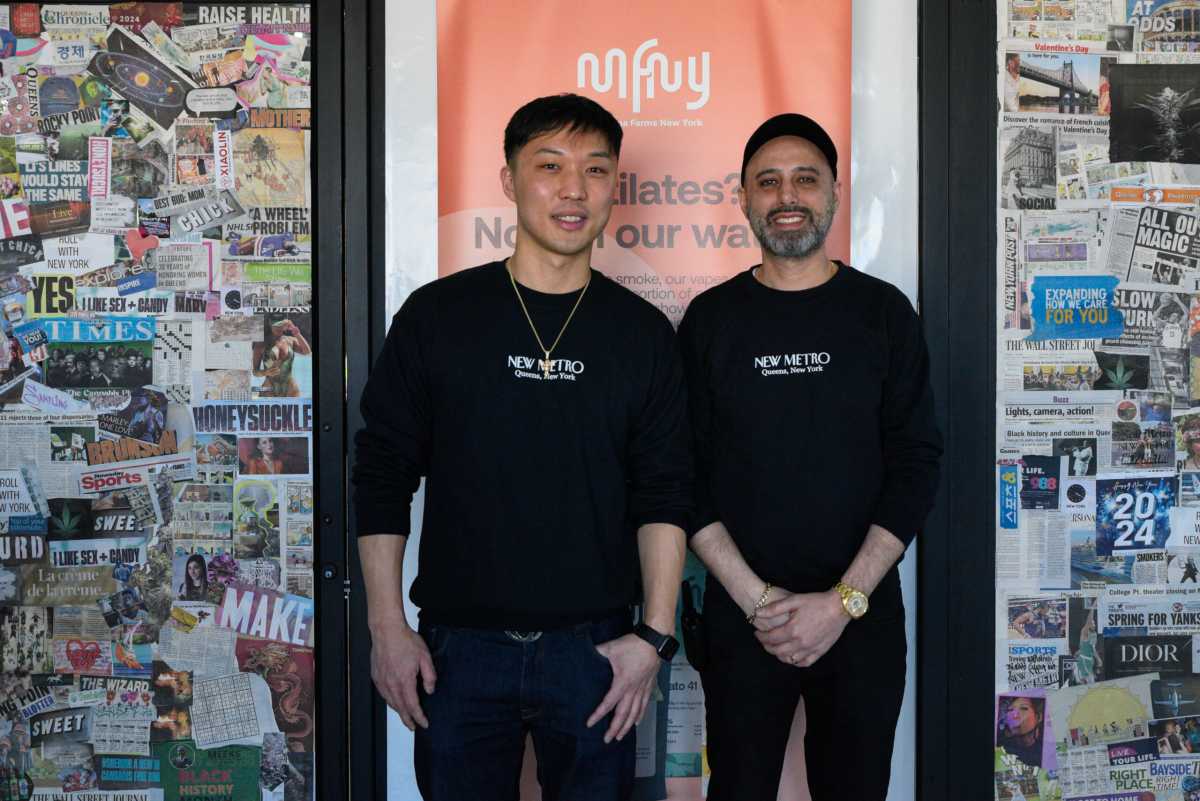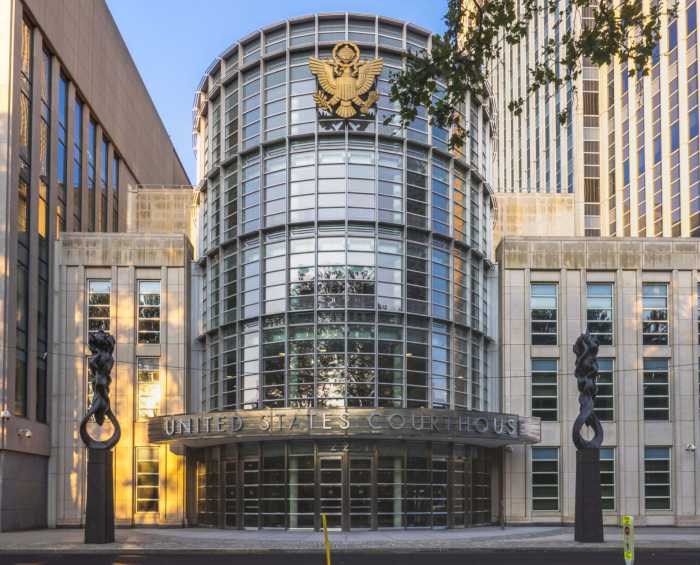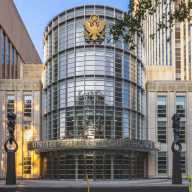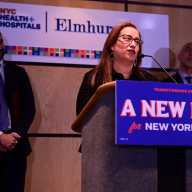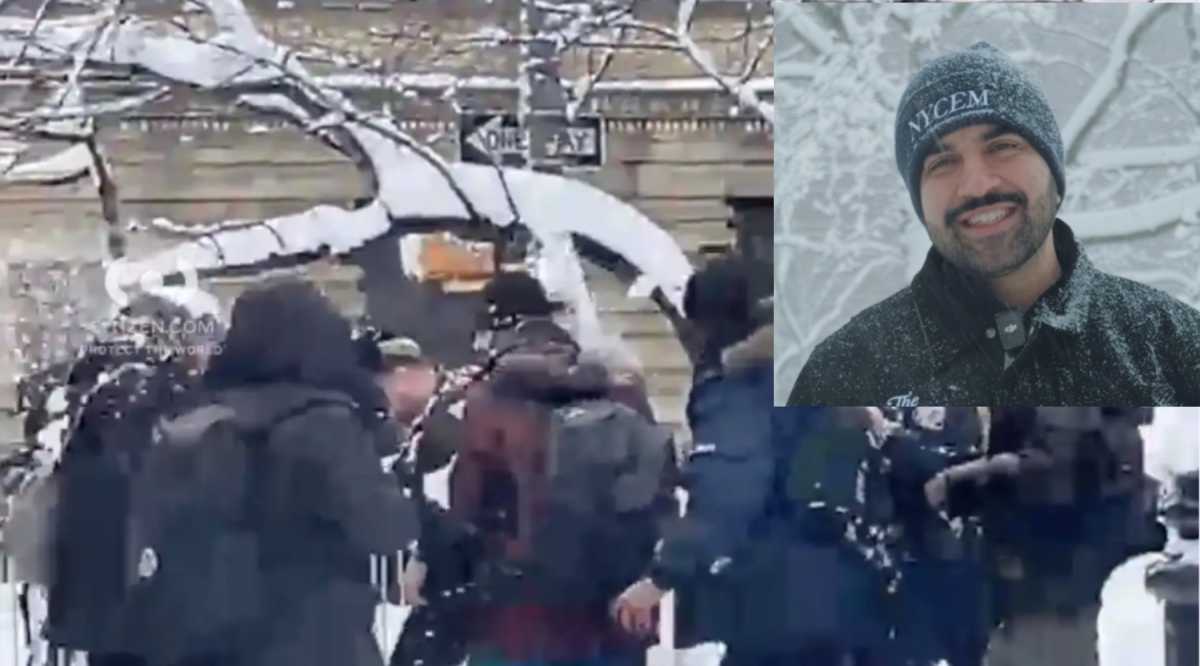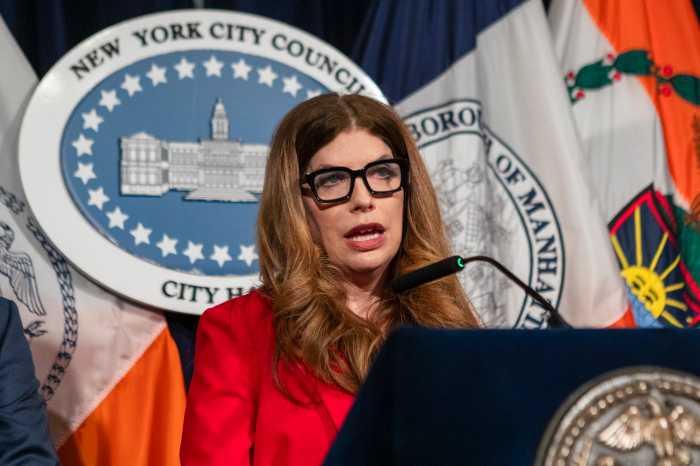Almost two decades ago, as a fresh-faced teenager who just graduated from Cardozo High School, Sean Kang was arrested on cannabis charges near his Bayside home.
On Monday he felt a sense of justice as he opened the doors to the area’s first legal dispensary – New Metro on Horace Harding Expressway. The newspaper themed dispensary, which used to be a hot yoga studio, is the last store on a tucked away strip with several Asian restaurants. One of Kang’s arrests for possession took place just a block away.
“It was a way different landscape back then. They don’t even give you a ticket for smoking outside now,” said Kang at the grand opening of the store on Feb. 19. “Looking back, it was a gift and a curse.”
Road to Opening Day
Kang was one of the recipients of the Conditional Adult-Use Retail Dispensary (CUARD) license which gave individuals impacted by the criminalization of marijuana priority in entering the legal cannabis industry.
In his application, he showed that he successfully ran two ecommerce businesses, in the years since his arrests, indicating that he had the business chops to turn a profit. While he received his license to open a retail space in Queens last April, and was given the greenlight to carry on by Community Board 11 in July, bureaucratic challenges delayed the opening.
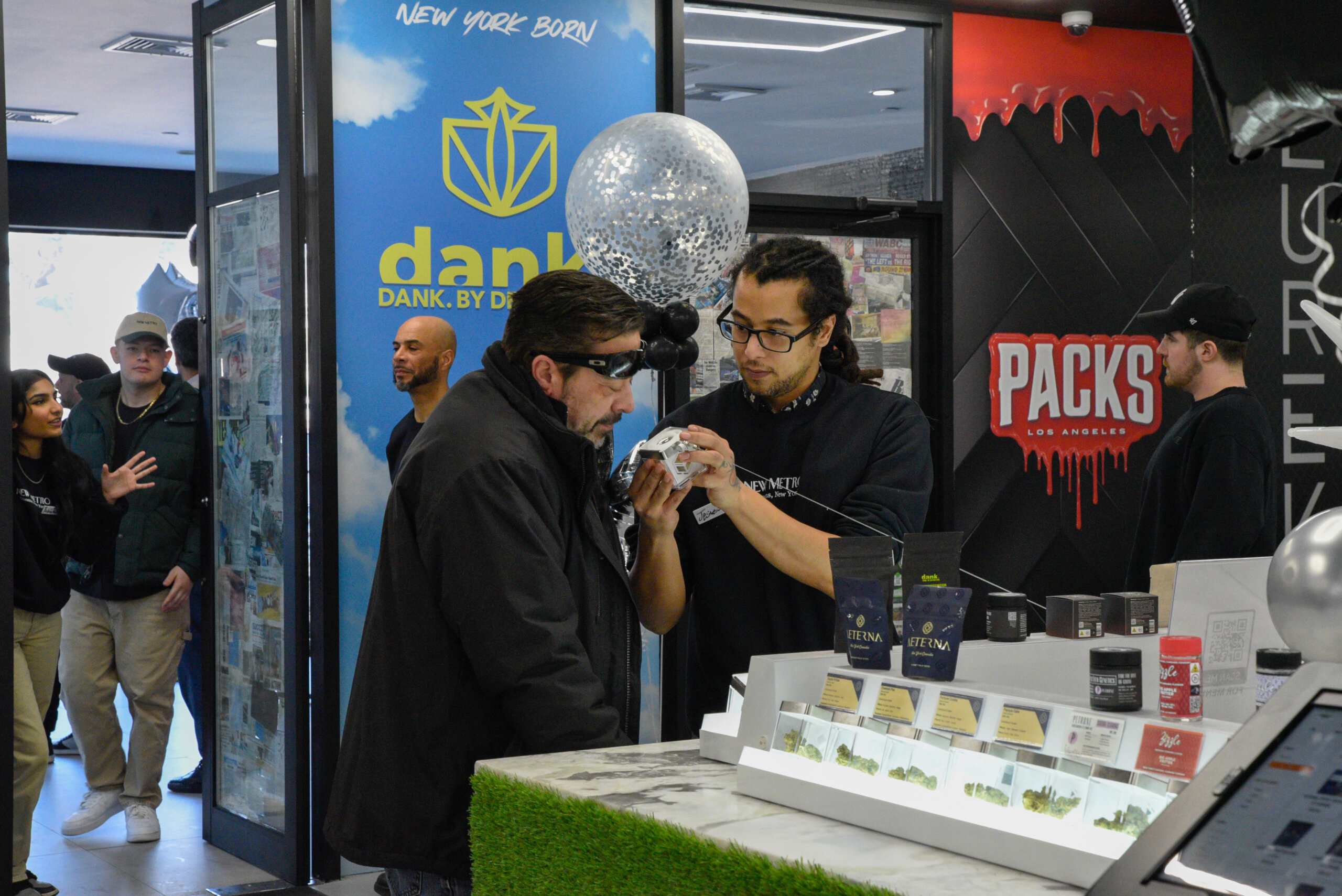
In August, four veterans filed a discrimination lawsuit alleging that the state’s CUARD licenses violated the 2021 legalization law by not offering licenses to all potential contenders at the same time. Service-disabled veterans, as well as women and minorities, are considered social equity applicants under the marijuana legalization law.
The injunction prevented hundreds of dispensaries from opening in a timely manner until it was lifted late last year, and a settlement was reached. It finally allowed licensed owners like Kang to open their doors.
Retro Meets Modern
Kang, along with his co-founder Jack Eisakharian, got the idea for a newspaper themed space to set themselves apart from other dispensaries, while also evoking a vintage feel.
The space features lit up New Metro signs, in various iconic newspaper fonts, that greet customers at the front desk. The doors to enter the store stocked with cannabis products are covered with a collage of newspaper clippings.
Close to two dozen employees wear the store’s merchandise, a simple black hoodie with the store’s name in a newspaper font as they help customers select the right product from a range of strains grown by farmers across the state, from Schenectady to Long Island.
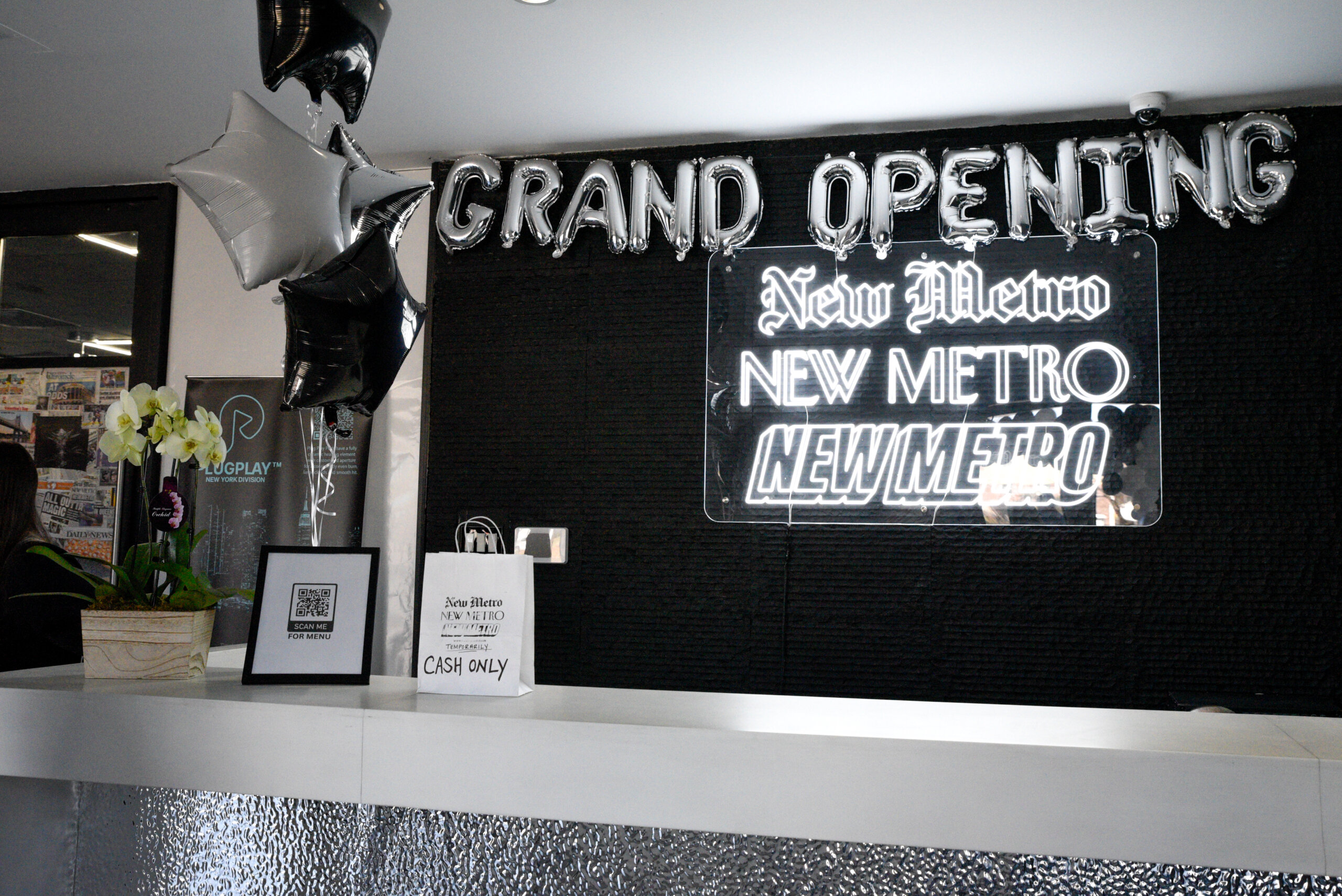
While the space is an ode to the print newspaper age, the dispensary is also heavily modern and equipped with iPads to browse the menu. But the attention to detail, from the bags to bring products home to the revolving edibles on a pedestal, gives the dispensary a unique flair.
The shop is divided into sections that show off a range of prerolls, edibles, tinctures and even beverages that come in flavors such as vanilla cola and apple cider. There is also a designated area for Kosher products, which features sugar-free gummies concocted by Jenny Argie, one of the few cannabis processors in the state.
Starting next month New Metro will also offer delivery, with a significant radius stretching out to throughout Queens, Manhattan and out east to Suffolk County. The vast parking lot in the back also has designated spots for customers for convenient pickups.
Competing with the ‘Black Market’
While Kang says it’s hard to believe how far the culture has come to bringing cannabis into the mainstream, it’s still jarring to see how many illegal smoke shops popped up seemingly overnight.
“They’re the biggest problem but it’s the state’s problem just as much as it’s my problem,” said Kang. “So hopefully they come in and do the right thing.”
There are approximately 60 legal dispensaries throughout the state, and in Queens there are just a handful with the closest one being Good Grades in Jamaica. But there are thousands of smoke shops mostly concentrated in the city that sell cannabis products, alongside regular snacks and beverages, under one roof.
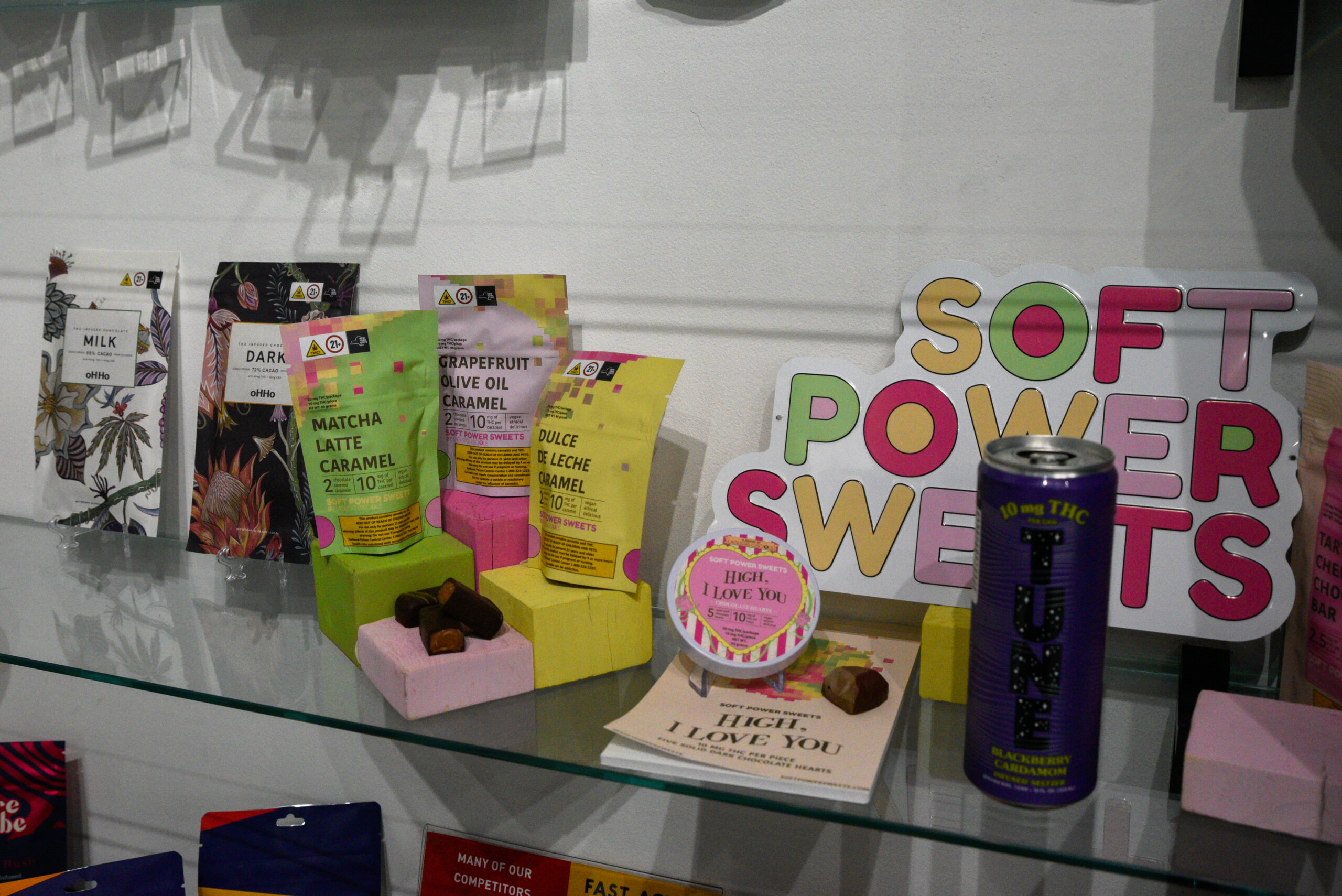
Unlike legal dispensaries, they don’t have security, are prone to robberies and often sell to minors. Legal dispensaries must adhere to strict guidelines set by the state such as being a certain distance away from schools and houses of worship. They also can’t put a cannabis leaf on the outside signage, which most illegal smoke shops have.
Kang says that he spent close to half a million dollars to get the shop up and running through the legal route. But it’s frustrating to see illegal smoke shops run without impunity, while also giving legal ones a bad rep.
“The smoke shops have zero regulation and they’re not paying taxes,” said Kang. “We pay the most taxes, we pay all these fees and yet the black market is thriving. We’re not the ones selling to your kids.”
But despite the hurdles to opening day, and worries about competition from business owners who took the easy route, Kang feels like everything worked out just right. For months, Kang and his partner scouted locations across the borough, but ultimately, they didn’t work out.
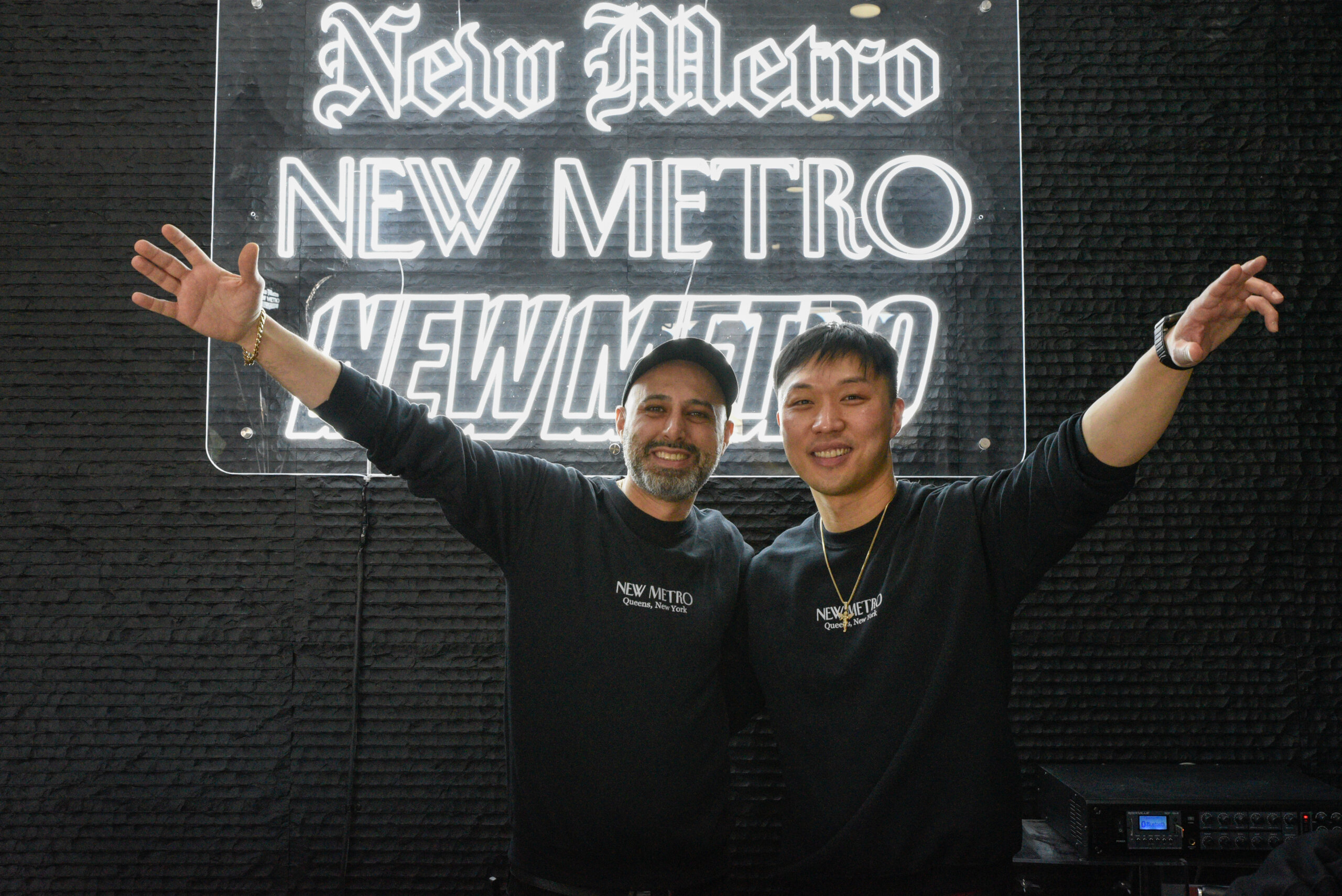
“I had a location in Astoria that I didn’t get. I was very upset but it just brought me back here to my hometown,” said Kang. “I feel right at home here. This is where I’m meant to be.”
Born in 1988, the Chinese year of the dragon, it’s a full circle moment for Kang. The 2024 lunar new year this month ushered in a new year of the dragon, as well as a new chapter for Kang and the Bayside community.

